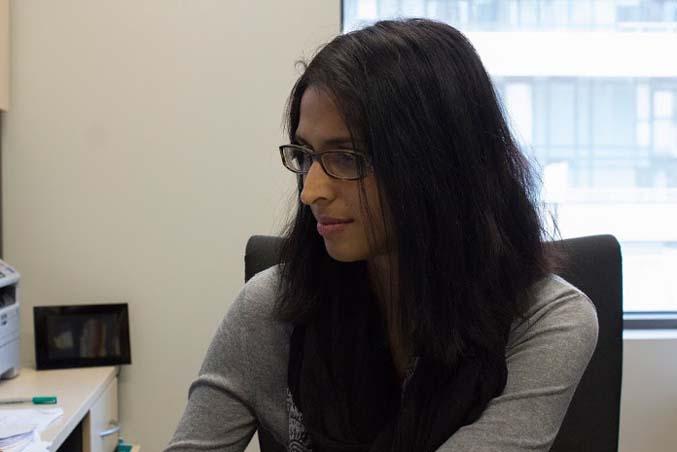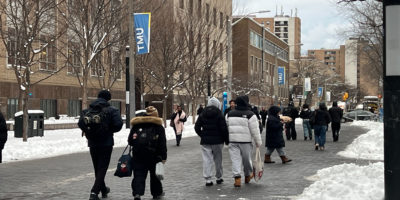By Jake Kivanc
Not quite Indian, not quite Canadian, Rupa Banerjee knows there’s nothing wrong with feeling this way, but that hasn’t stopped her from figuring out why.
Banerjee, 38, is an assistant professor at the Ted Rogers School of Management where she has been teaching classes on human resources for the past seven years.
Outside of teaching, Banerjee conducts research into how immigrants, as well as visible and religious minorities, fare in the economy. Her most recent study is a look at the way in which immigrants who have arrived in Canada via the live-in caregiver program are able or unable to integrate themselves into Canadian society.
The program, which allows immigrants to take on nanny-like roles in caregiver positions to expedite the number of years that it takes to be granted citizenship, is one that Banerjee said limits the growth potential of immigrants and their families.
“Once their families actually arrive, they go through the process of sponsoring their kids and their families, they then have a whole new integration process,” she said. “Now they’re trying to find a place to live and find a survival job, but they already have a job as a nanny. Do they drop all that and start over?”
It’s an issue Banerjee said she feels strongly about. Immigrating to Canada at a young age, Banerjee and her family found themselves smack dab in a zone of cultural ambiguity as residents of Windsor, ON.
Banerjee describes herself as a “onepointfiver” an immigrant who came to Canada as a child but doesn’t necessarily have to face the same level of adjustment as a first-generation immigrant like their parents would.
The experience is one she said had a profound impact on her development.
“Growing up, I thought, ‘Where am I accepted?’” she said. “Are you accepted anywhere and do you accept yourself?”
One of the most powerful memories she can recall is when she traveled to India last year with her family, only to feel out of place in the very society she came from.
“That experience of being the outsider, even though you are the insider in many ways in that you look like them, was very interesting to me,” she said. “It really highlighted this other interest of mine which is the question of belonging or lack thereof for second generation immigrants like myself.”
Banerjee, who graduated with a PhD from UofT in 2007 but decided to come to Ryerson to teach, said that the atmosphere and diversity of the campus was attractive to her.
“People coming to Ryerson, I think they see the energy and diversity,” she said. “You have students who want theoretical learning, but also a certain applied learning that many perceive as being stronger at Ryerson. It’s a mix between theory and application that’s truly unique.”












Leave a Reply